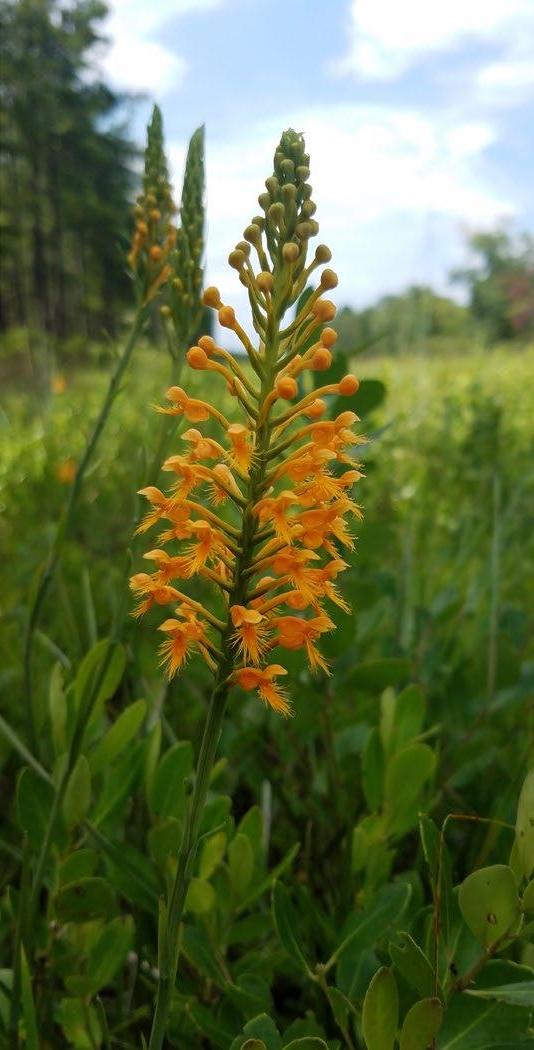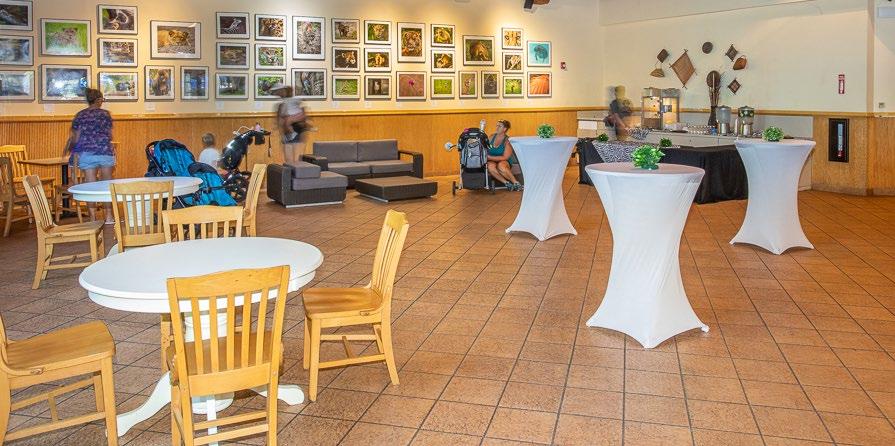
1 minute read
Saving Fringed Orchids
By Houston Snead, Plant Conservation Officer
Fringed Orchids on the Fringe of Existence
Advertisement
Habitats of many plant and animal species across the developed world have changed so much that they can no longer live in the places they have been for thousands of years. Reduced natural wildfire frequency plays a large part in the loss of quality habitat across the Southeastern United States, allowing too many trees and shrubs to grow up in what used to be open, sunny grassland. The extra shade created by this change in habitat does not allow for the growth of plants in need of more direct sunlight. In other places, destructive forestry practices and human development have pushed species further and further into the last remaining spaces suitable for their needs.
Powerline and roadside right-of-ways are becoming some of the last places we find one of Florida’s endangered orchids, Platanthera chapmanii (Chapman’s fringed orchid). Jacksonville Zoo and Gardens has worked since 2016 to search the historical range, and monitor populations of Chapman’s fringed orchid in the wild.
We have found that this is not the only beautiful plant growing in these small areas, but many wildflowers native across the southeast are being pushed to the fringes of their habitat. The mowing of roadsides has kept the habitat open and sunny for native diversity, but mowing too often results in large losses of seed production. Unfortunately, the use of herbicide in these areas is also on the rise and can completely wipe out the remaining populations in a region.
Jacksonville Zoo and Gardens works with roadway and land managers to create solutions in areas where we find endangered plants. We are finding that when we reduce mowing to one time a year and stop spraying herbicide, native plants can thrive.
You can also take action to conserve native wildflowers in your region. Call your county public works office, the state department of transportation, and other land managers to tell them how important native plant diversity is to you and advocate for reduced mowing and limited to no use of herbicide in right-of-ways.











